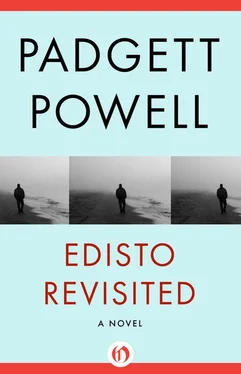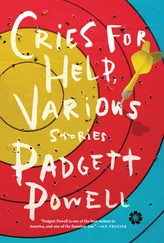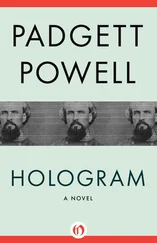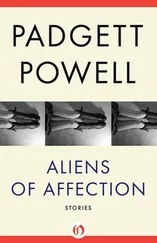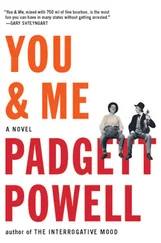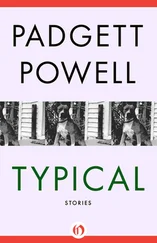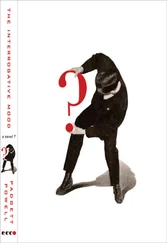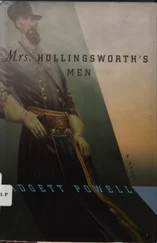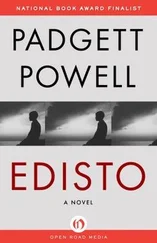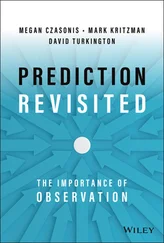MY FRIEND FROM COLLEGE arrived in Corpus Christi on the same day I did. We did not know this for two days, during which we each formed opinions about the unreliability of the other and about how we should go about becoming fishermen. When we met, finally, by accident, each was convinced the other was worthless and so were his ideas. My idea was to buy a big boat. Jim’s idea was to buy the saltwater equivalent of a canoe, a big license, and a big truck. My idea was to fish, his was to sell fish. In this he was of course prudent. I let him have his way.
We got licenses to trade fish, and trade we did. A lot of it was standard fish wholesaling, some of it not. We got a load of shad from a game-commission netting study of some freshwater lakes and thought we could sell them. We could not sell them even to hog farmers, who told us if a hog ate a shad he would smell like a shad, not a hog, on the table. We wound up paying more money to dump the shad than we’d paid to acquire the shad.
On the whole, though, we were not unsuccessful. And that is why we did not last long. With the failures of actual fishing, I suspect we’d have been better and longer at it. But that — weather, seas, mechanical failures, monsters of the deep, charts, lights, currents — came under the heading of Romance for West Virginia Jim. “Do you think it’s a story out there?” he’d say. “It’s not a story out there. We sit right here on level asphalt that’s not moving with a half ton of ice and wait for the fish to come to us.” And that we would do, talking dully until we got the fish and hauled them to someone else becalmed on asphalt, waiting prudently for the fish, a little more expensively, to come to him. After eight months of it we divested and quit — even.
But while I was asphalt fishing in Corpus Christi something relevant occurred. My mother phoned me one night at the Cactus Motel, where for sixty dollars a week we had our corporate and private headquarters in a room with two big beds, two big windows, two big doors (front and back, the quick-exit design, though I’d stand and accept my front-door accuser before I’d have tried the gauntlet of broken glass and condoms and seagulls, dead and alive, and fan belts, and even what I think was, judging from the decomposed plastic flesh, a Judy Love Doll splayed out in that glass, etc., as if awaiting your fall into her arms, her ruby rubbery O-shaped mouth suggesting surprise until you realized what it really suggested and gingerly stepped back into your sixty-dollar room, the evening constitutional over) — she phoned and the office manager came down and got me and I went to the office and as I began speaking with her, just as I began realizing she might be drinking, the office manager said to me, “Would you please get off the pone .”
I looked at him quizzically.
“It’s a business pone ,” he said, with great conviction and certainty. That I could not deny. Figuring the logic of his giving me the business pone not two minutes before taking it back was beyond me, beyond anybody; what occupied me, besides trying to hear my mother, was whether the office manager had any teeth. You never saw them, yet his face was not collapsed either. I said to him, inspired: “Go get the tequila from my room, limes in the sink. I know goddamn well this is a goddamn business pone.”
“Who’s that?” my mother was saying, I imagine — I was watching my man petulantly, but not altogether reluctantly, leave the little office.
“I’m back,” I said to her, when I could, and she was in mid-sentence carrying on, and I had to start trotting along with her to get up to speed. A locating word was “Father.” Then “not too upset,” which I at first took to apply to Patricia Hod but then took to refer to the old man, logical in all ways. Patricia Hod would be either not upset or, if upset, would have burnt the house down, and my father was perpetually not too upset. One more hard locator item and I’d have her, my mother, triangulated without having to slow her down. The manager came back in, solemnly carrying the bottle and the limes, put them down defiantly on the desk, and glared at me. I held up two fingers and made a little circular motion, and he raised his eyebrows, to which I circled some more and gave the two fingers again, and he bent slightly and pulled up, from behind the desk as if it were a miniature bar, two glasses. With one hand I unscrewed the tequila and poured the glasses full and set the bottle down hard. “I know goddamn well this is a goddamn business pone,” I said again.
“Am I saying anything?” he shouted, picking up his drink.
“—because you haven’t contact—” my mother was saying—“contacted those …”
“Mother, you mean the jobs?”
“The positions.” She was drunk, furious. What was bubbling up here in these emphases was her unending disappointment that I was, apparently, even in not contacting my positions, an architect — that my father had prevailed. For this she was not angry at me, as she should have been, but at him, which was easier and which preserved hope: it was not me who had not become the William Wordsworth of Wadmalaw, it was he, my old man, who had stopped me. I could yet be salvaged. I was not altogether manqué, simply not yet found. She was seething. I chuckled, toasting, as I did, the manager, who solemnly returned the gesture, with a shooing of his free hand telling me to go ahead, keep talking, using the business pone.
“What’s so funny ?” my mother asked.
“Nothing.”
“You’d better …”
“I’d better what?”
“Stop that.”
“Stop what?”
“Stop … everything .”
At this, despite myself, I laughed again. It was not a prudent move, but it could not be helped. Before I could repair the damage, sure enough, she hung up. I looked, as one will, at the mouthpiece of the phone and held it in the air regarding it long enough for the manager to understand I’d been hung up on.
He shrugged. “Your girl?”
“Yeah.”
“I don’t like Saturdays worth a damn. Everybody don’t like Monday, but I do. Saturday is a bunch of hooey.”
I poured us some more tequila, had him get us some salt, and we drank a few little shots, looking out at traffic and not saying much. I could not figure out, drink in and drink out, watching him at all furtive angle and even watching him bite limes, if he had teeth or not.
In the little office, with its pine paneling and bad carpet and out-of-date calendars on the wall, the business pone idle, all the cars going by, I thought to think the moment one of contentment, a kind of contentment likely not to be enjoyed forever. That is an odd emotion, drinking with a geezer and with a Judy Love Doll out the back door of your room, but it is an emotion that is true.
“You know what else is not all it’s cracked up to be?” I asked the manager.
“What?”
“Fishing.”
“That shit,” he said, “is for the birds .”
We both laughed, fine fast friends if there ever were fine fast friends in this world. I think I saw a tooth.
“Fishing on a Saturday about the worst idea in the world,” he said.
THE WAY WE HAD worked it, fishing any day was, to my mind, the worst idea in the world. We didn’t spot a school of fish and lower lines or nets, we spotted a good price on a case of thirty-weight and pulled into AutoZone and debated whether we needed fan belts and oil or just oil. I got thoroughly impatient with the enterprise, though we were making money. Not a lot, but enough to be surprised when we looked at the checkbook.
Читать дальше
